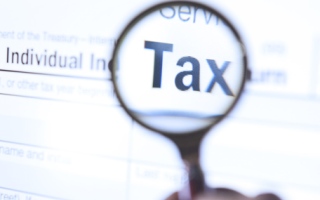- City Fajr Shuruq Duhr Asr Magrib Isha
- Dubai 04:33 05:50 12:21 15:48 18:46 20:03
The UAE has no plans to tax its companies and is considering other options, including issuing bonds, to expand revenue and ensure sufficient funding for its budget needs, the country’s minister of finance was quoted on Wednesday as saying.
Sheikh Hamdan bin Rashid Al Maktoum, Dubai’s Deputy Ruler, said the long-awaited public debt law could be issued within 18-20 months, after which the federal government would be able to issue its first bonds.
“There are no plans to impose corporate taxes in the UAE, but we are discussing some initiatives to expand revenue sources and improve budget practice through a comprehensive reform process for the fees collected by the federal departments with the aim of reducing collection costs,” he told the Arabic language daily Alkhaleej.
He said the government is also taking what he described as corrective measures regarding the public finance policy in order to redress any fiscal imbalances.
VAT
Regarding the proposed value added tax (VAT), he said the issue would be discussed again by the UAE and its partners in the six-nation Gulf Cooperation Council (GCC), adding that the tax could range between three and five per cent.
Sheikh Hamdan said options to fund the UAE budget and infrastructure projects include issuing bonds by the federal government for the first time and that the bonds would be issued once the planned public debt law is released.
“We are still reviewing all aspects of the public debt law given the fact that there is no immediate need for issuing bonds at this stage,” he said.
“I expect the first federal bond issue to take place just after the issuance of the public debt law when the preparatory period of 18-20 months ends…we will then chalk out a detailed plan for bond issue in coordination with all relevant parties, including the central bank and the Securities and Commodities Authority.”
Sheikh Hamdan said the public debt law, on cards for several years, would help regulate payment of accumulating debt, facilitate the restructuring of establishments and companies, allow debt defaulters to borrow from banks to support their business and settle debt, and ensure ways to guarantee the rights of debtors and creditors.
“All this is supposed to reduce risks, provide a better and safer economic environment in the UAE and stimulate the domestic economy…as such a law with this flexibility is enforced, we expect investor’s confidence in the local market to strengthen.”
Sheikh Hamdan said the Ministry of Finance is still studying a ceiling on such bonds, adding that the debt law would also turn the UAE into a major regional financial centre, spur foreign capital, support efforts to control inflation, develop stock markets, achieve financial stability and improve stockbrokerage activities.
UAE’s GDP
Turning to the economy, he said the UAE’s GDP, the second largest in the Arab world, grew by around 4.9 per cent in 2011 while inflation remained under one per cent and the current account surplus sharply expanded to nearly nine per cent of GDP.
His forecasts showed the non-oil sector would grow by 3.5 per cent in 2012 while the current account could further swell to 10.3 per cent.
He projected the UAE GDP would grow from around $360.1 billion in 2011 to $386.4 billion in 2012 before peaking at $448.3 billion in 2017. The consolidated account, covering the federal budget and spending by each emirate, recorded a surplus of around 38.6 billion in 2011 and it could swell to Dh109.2 billion this year.
(Home page image courtesy Shutterstock)
ALSO READ:
VAT may come to the UAE in 2014: What will it mean for you

Another night fire horror in JLT high-rise: Cigarette butt sparks 38-storey evacuation

College accountant forges 204 cheques worth Dh15.7m, buys Marina house, flees Dubai
![]() Follow Emirates 24|7 on Google News.
Follow Emirates 24|7 on Google News.